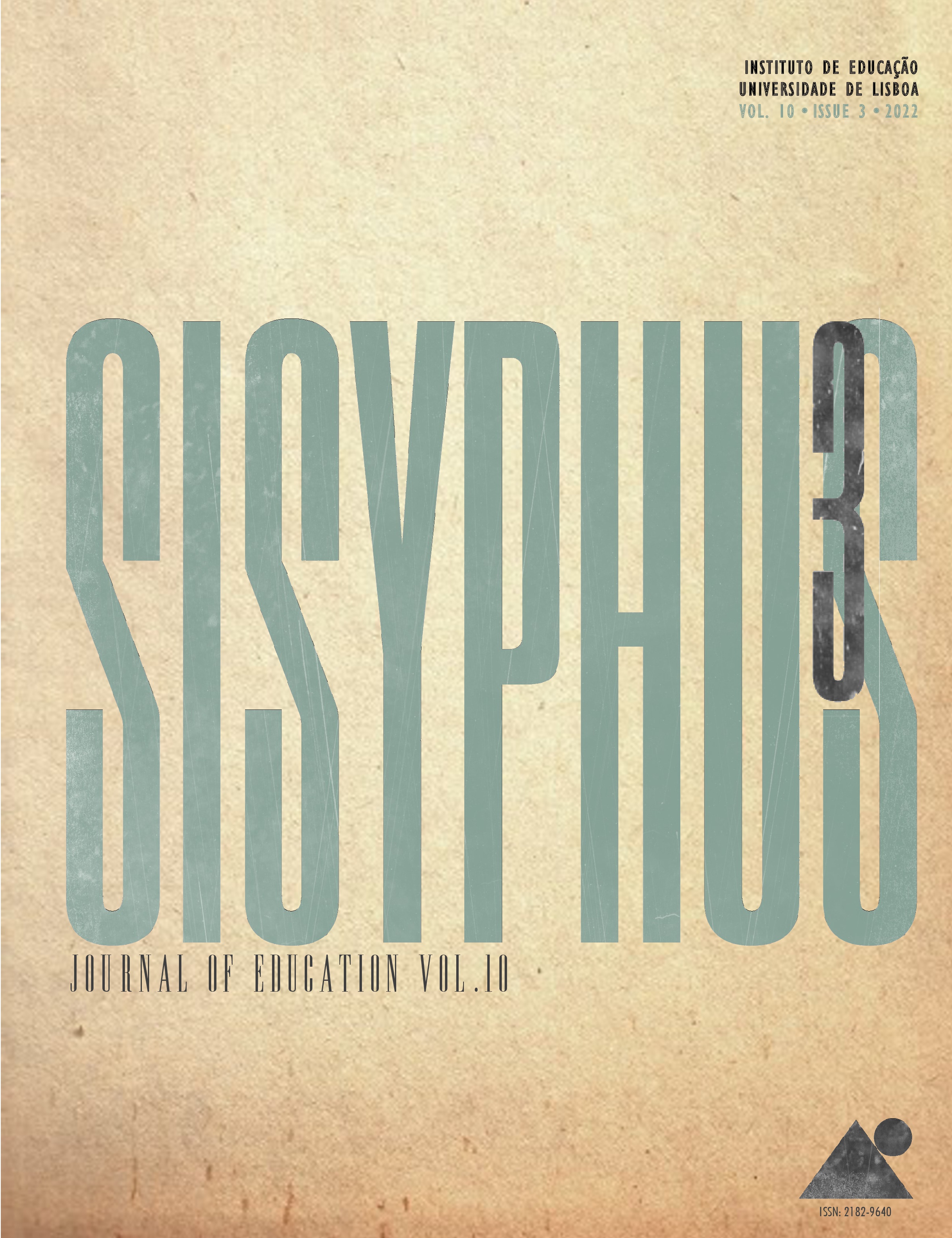The Use of Technology and its Contributions to the Comprehensive Training of Students with Autistic Spectrum Disorder and Students with Intellectual Disabilities in Mathematics Classes
DOI:
https://doi.org/10.25749/sis.27503Keywords:
special education, math, technology, autism, intellectual disabilityAbstract
This article aims to specify favorable contributions to the comprehensive training of students with Autism Spectrum Disorder and students with Intellectual Disabilities, through investigations whose object of study are teaching and learning processes of mathematical content using educational technological resources. As a methodological basis, qualitative bibliographic research was adopted. The academic works that were analyzed articulate: Technology, Special Education and Mathematics. Significant contributions can be specified that fall into different dimensions: emotional, social, and cognitive. In conclusion, despite being different groups of students and with particularities often considered as unique, similar results were identified in relation to the same strategies applied, which leads to the conclusion that the flexibility offered using technology contributes to the construction of a non-homogenized practice that can meet the singularities of all students, allowing them to learn in the same environment.
Downloads
References
AAIDD - American Association On Intellectual and Developmental Disabilities. (2010). Intellectual disability: definition, classification, and systems of supports. Washington, DC: American Association on Mental Retardation.
APA - American Psychiatric Association. (2013). Diagnostic and Statistical Manual of Mental Disorders: Diagnostic and Statistical Manual of Mental Disorders. (5th Edition). Arlington, VA: American Psychiatric Association.
BRASIL. Ministério da Educação. (2018). Base nacional comum curricular. Retirado de: http://basenacionalcomum.mec.gov.br/images/BNCC_EI_EF_110518_versaofinal_site.pdf
Delisio, L. A., & Dieker, L. (2019). Avatars for Inclusion: Innovative mathematical approaches for students with autismo. Childhood Education, 95(3), 72-79, doi: 10.1080/00094056.2019.1616474
Felcher, C., Viçosa, C., Soares, R., & Folmer, V. (2021). O uso da sala de aula invertida para ensinar polígonos. Revista De Ensino De Ciências E Matemática, 12(1), 1-18. doi: 10.26843/rencima.v12n1a03
Gil, A. C. (2002). Como elaborar projetos de pesquisa. São Paulo: Atlas.
Gonçalves, A. (2006). Reflexões sobre educação integral e escola de tempo integral. Cadernos Cenpec | Nova série, 1(2). doi: 10.18676/cadernoscenpec.v1i2.136
Mantoan, M. T. E. (2003). Inclusão escolar: o que é? por quê? como fazer?. São Paulo: Moderna.
Masciano, C. F. R. (2015). O uso de jogos do software educativo Hércules e Jiló no mundo da matemática na construção do conceito de número por estudantes com deficiência intelectual. (Dissertação de Mestrado em Educação). Universidade de Brasília Faculdade de Educação, Distrito Federal, Brasil.
Nascimento, I. C. Q. S. (2017). Introduções ao sistema de numeração decimal a partir de um software livre: um olhar sócio-histórico sobre os fatores que permeiam o envolvimento e a aprendizagem da criança com TEA. (Dissertação de Mestrado em Educação e Ciências e Matemáticas). Universidade Federal do Pará, Belém, Brasil.
São Paulo. Secretaria da Educação. (2019). Cresce em 33% o número de alunos com autismo atendidos pela rede. Retirado de: https://www.educacao.sp.gov.br/cresce-em-33-o-numero-de-alunos-com-autismo-atendidos-pela-rede/
Souza, A. C. (2019). O uso de tecnologias digitais educacionais para o favorecimento da aprendizagem matemática e inclusão de estudantes com transtorno do espectro autista em anos iniciais de escolarização. (Dissertação de Mestrado em Educação). Universidade Federal de Alfenas, Alfenas, Brasil.
Viana, E. de A., & Manrique, A. L. (2018). A educação matemática na perspectiva inclusiva: investigando as concepções constituídas no Brasil desde a década de 1990. Perspectivas Da Educação Matemática, 11(27). Retirado de: https://periodicos.ufms.br/index.php/pedmat/article/view/7298
Downloads
Published
Issue
Section
License
Copyright (c) 2022 Sisyphus — Journal of Education

This work is licensed under a Creative Commons Attribution-NonCommercial 4.0 International License.
Copyright (c) belongs to Sisyphus - Journal of Education. However, we encourage issued articles to be published elsewhere, provided that Sisyphus authorization is asked for and that authors integrate our original source citation and a link to our website.
Author Self-Archiving Policy
Author(s) are permitted to self-archive the final published version in institutional or thematic repositories, and in their personal or institutional websites.
DORA Signer
The Instituto de Educação da Universidade de Lisboa, Sisyphus' Publisher, is a San Francisco Declaration on Research Assessment signer.






